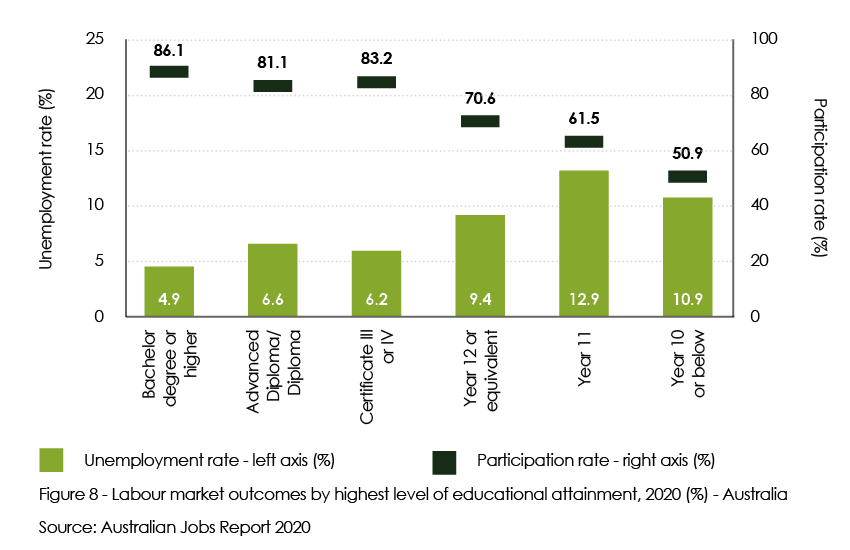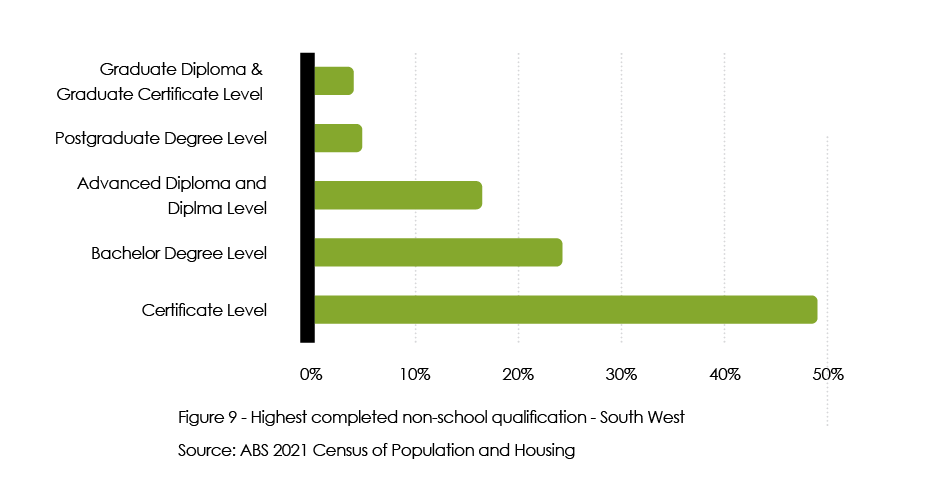The knowledge and skills of workers available in the labour supply is a key determinant for both business and economic growth. Those with higher education and training earn higher wages and contribute more to the economy through spillover spending (Radcliffe 2020).
The region features Western Australia’s largest non-metro TAFE with six campuses in the region, while Edith Cowan University (ECU) South West, Bunbury is the largest regional campus in WA. ECU has more than 30,000 undergraduate and postgraduate students, including international students from 100 countries.
ECU South West features recognised research partnerships, study hubs and learning centres throughout the region, offering a comprehensive range of courses in arts, commerce, science, environmental health, health science, nursing, midwifery, social work and teacher education.
ECU South West also delivers the WA Creative Tech Innovation Hub – WA Creative Tech Village in Bunbury and is establishing the South West University Department of Rural Health. This will offer medical, nursing and midwifery and allied health students practicum placements throughout the region to boost rural primary care workforce, improve health outcomes and give students a taste of rural-regional work.
In addition to the courses offered by South Regional TAFE, there are numerous Registered Training Organisations supporting the public sector and meeting the needs in the area of apprenticeships and traineeships.
Data from the last decade shows increasing levels of educational achievement, although the South West still lags behind Greater Perth: 4.2% studying toward a bachelor or higher degree versus 1.6% in the South West (2021). The disparity may be due to the cost of education for regional students having to fund accommodation in the city, and the greater mobility of highly educated people.
The number of people undertaking tertiary training is increasing and more of the workforce now holds postschool qualifications with growth recorded in both VET and higher education qualifications.
With increasing technical knowledge required in roles that were once unskilled, it is vital that levels of higher educational continue to progress.


